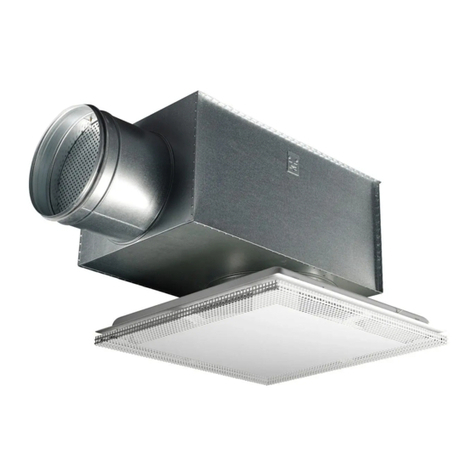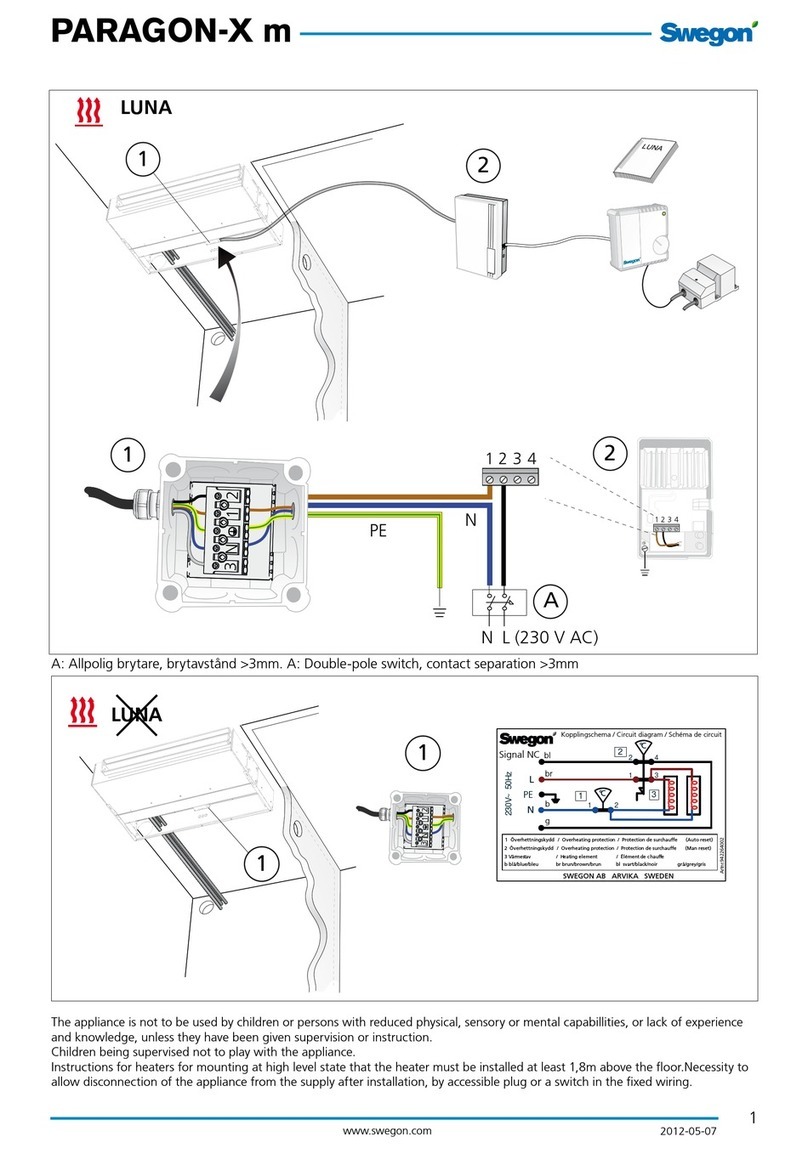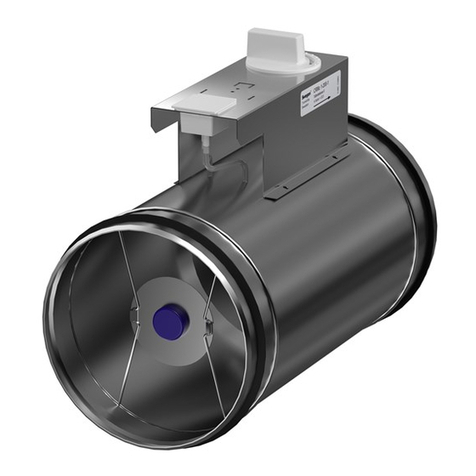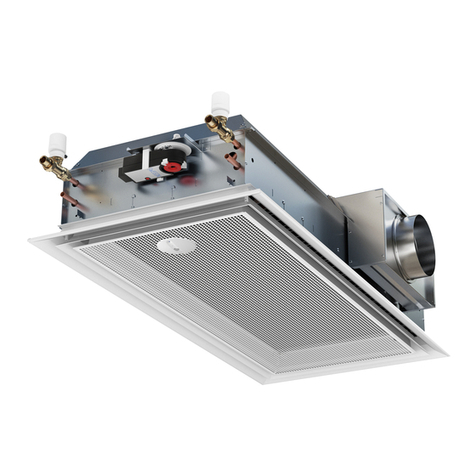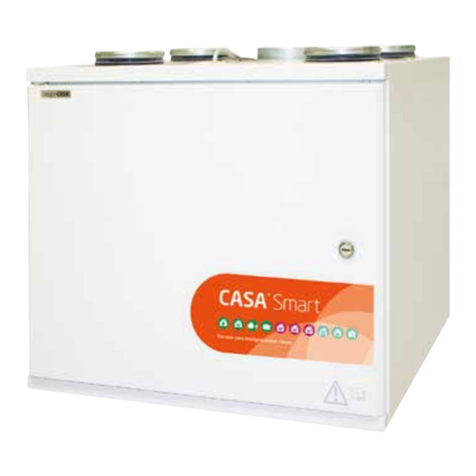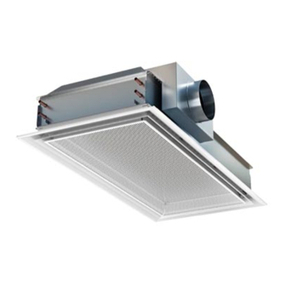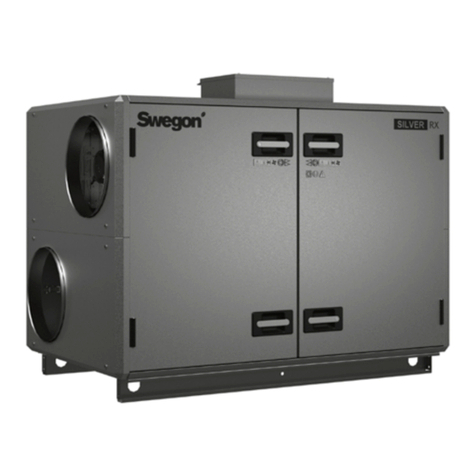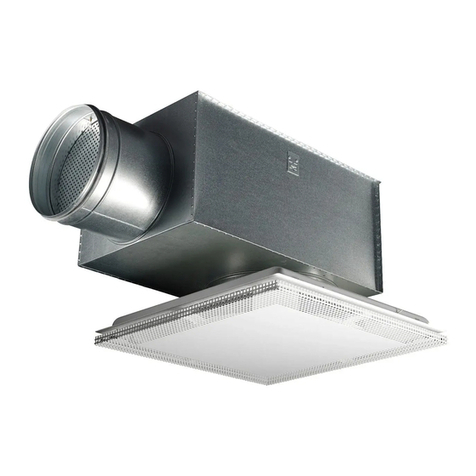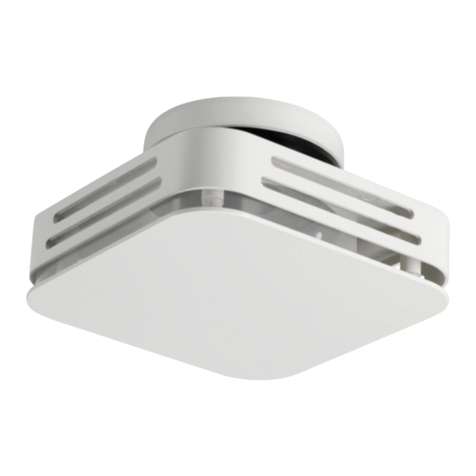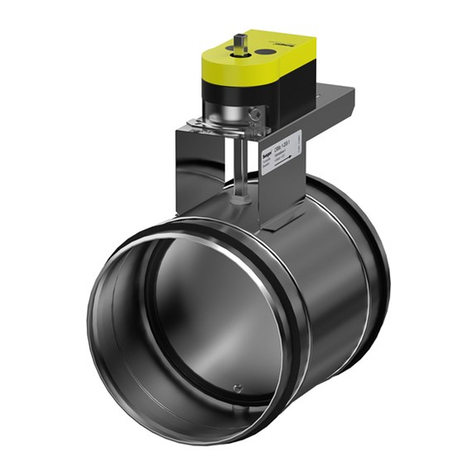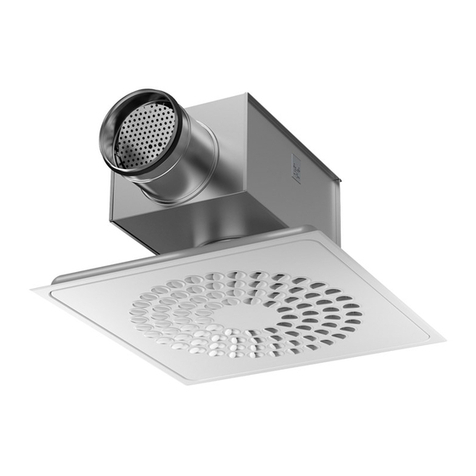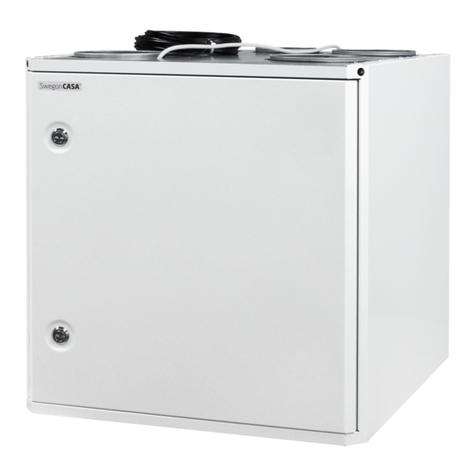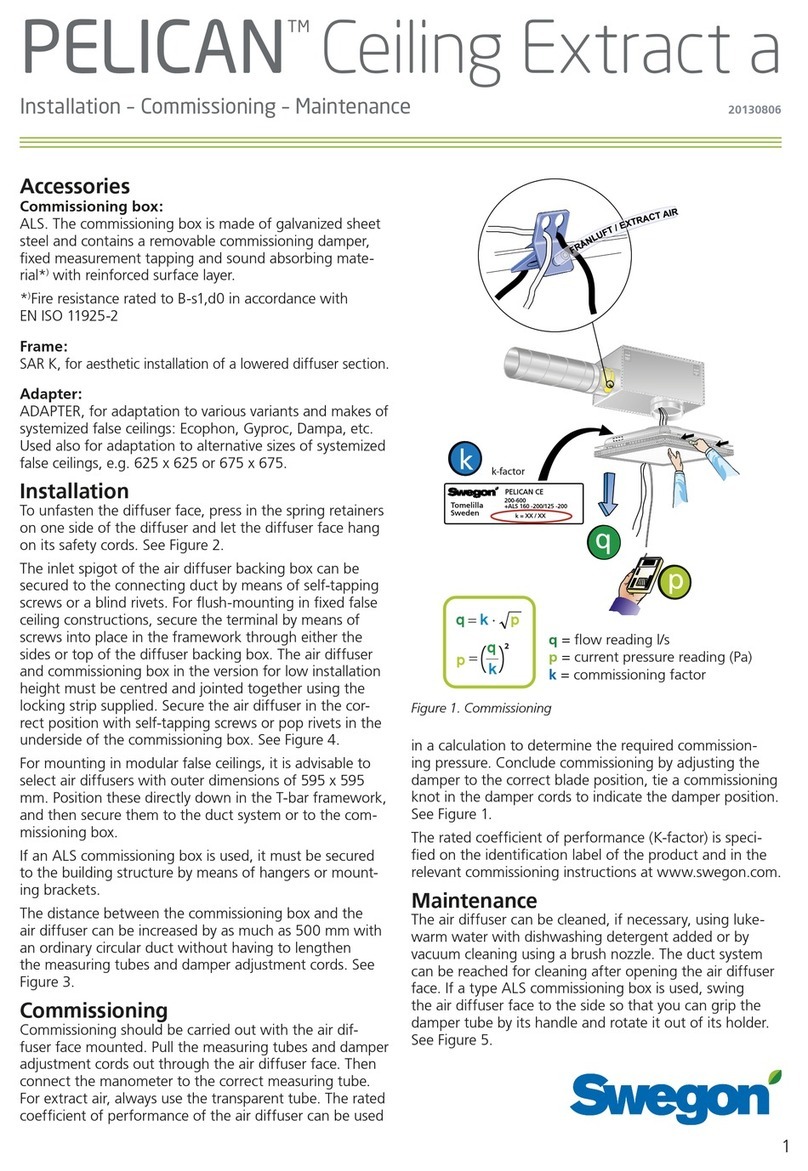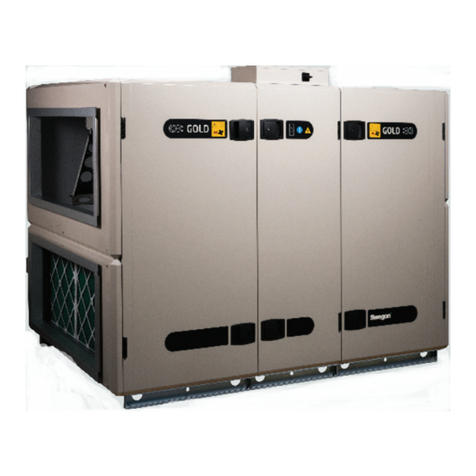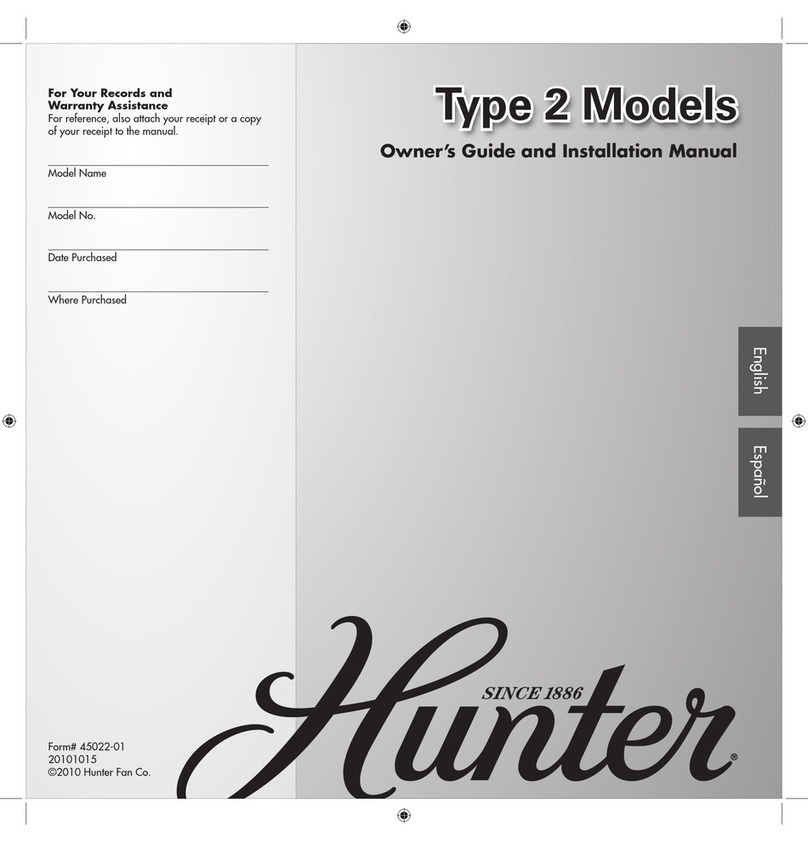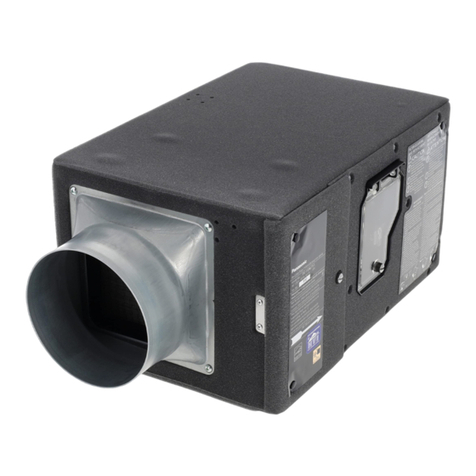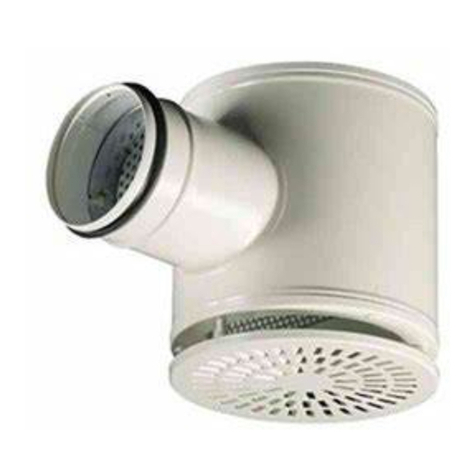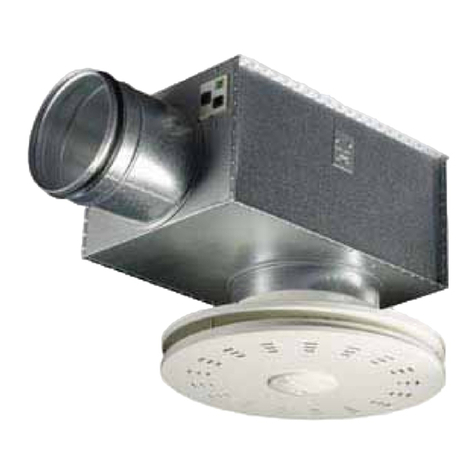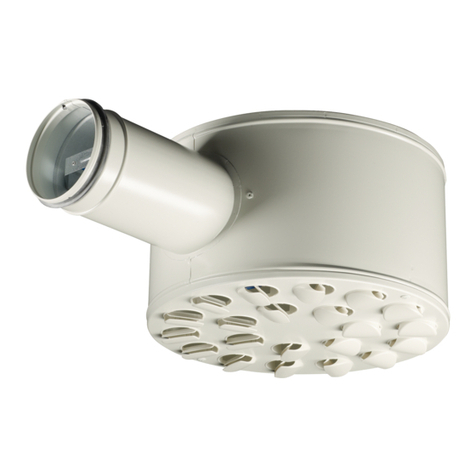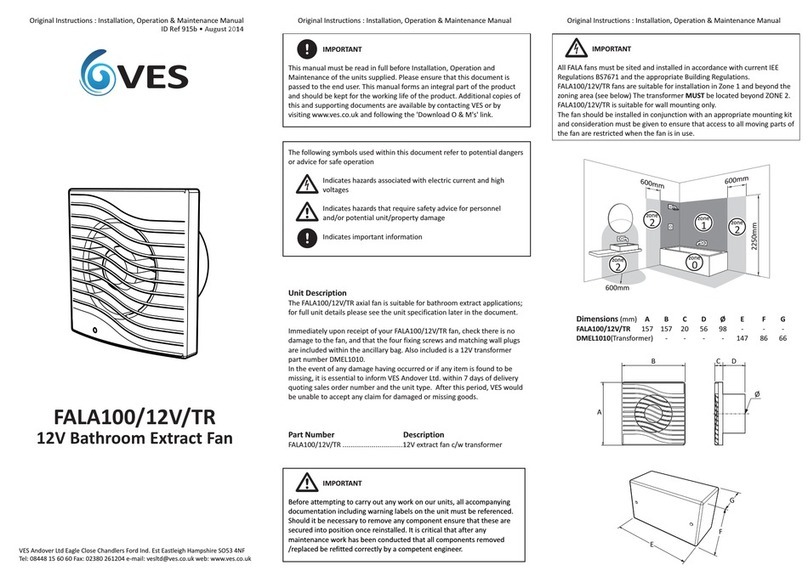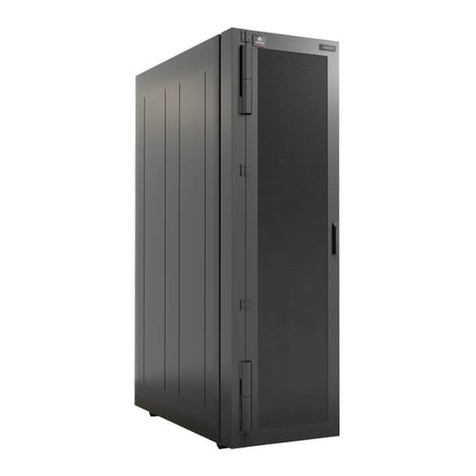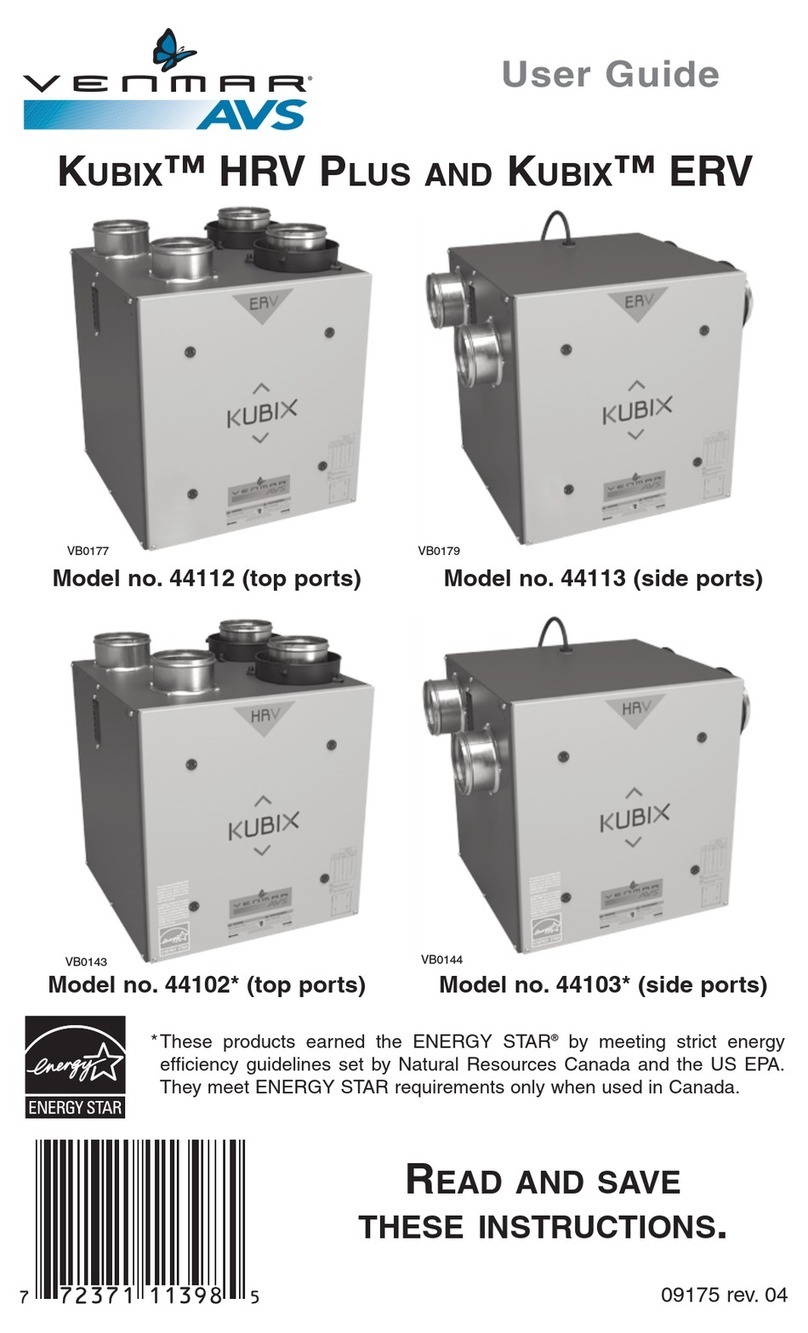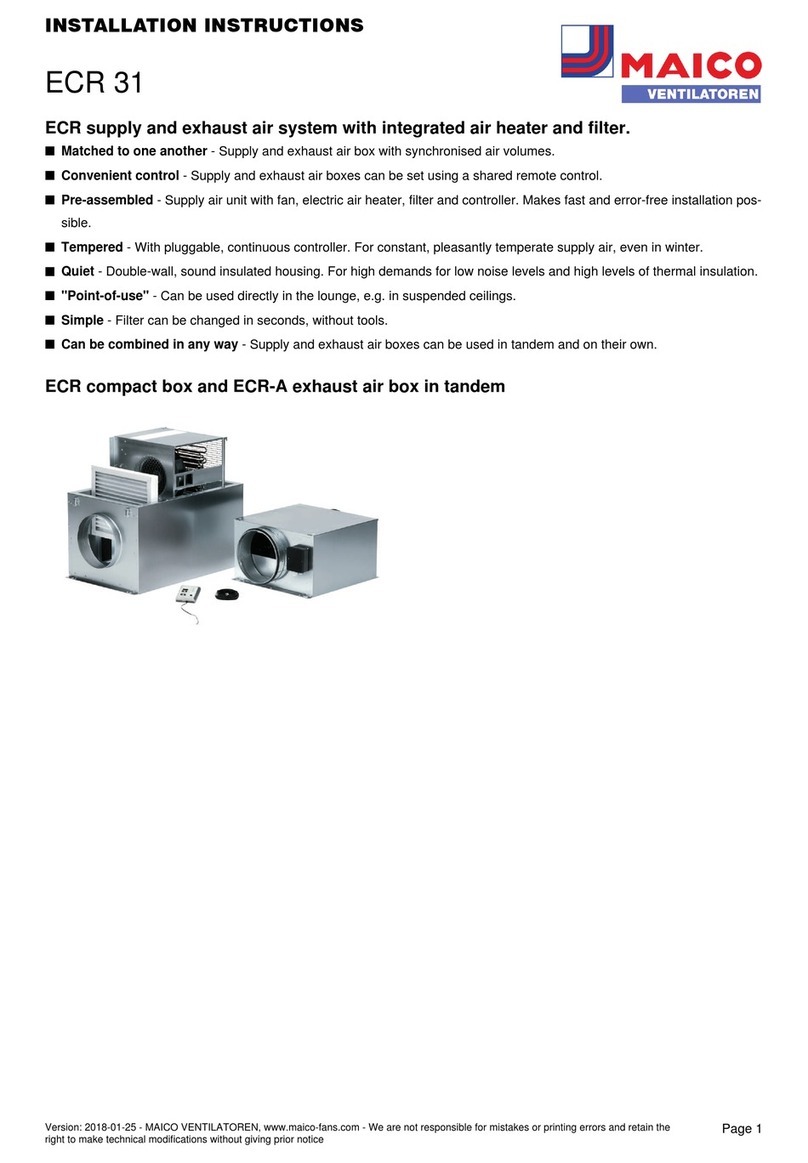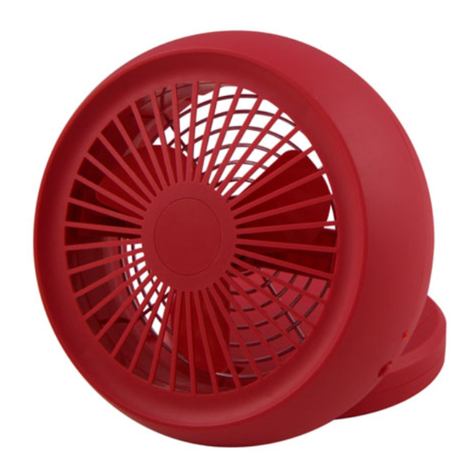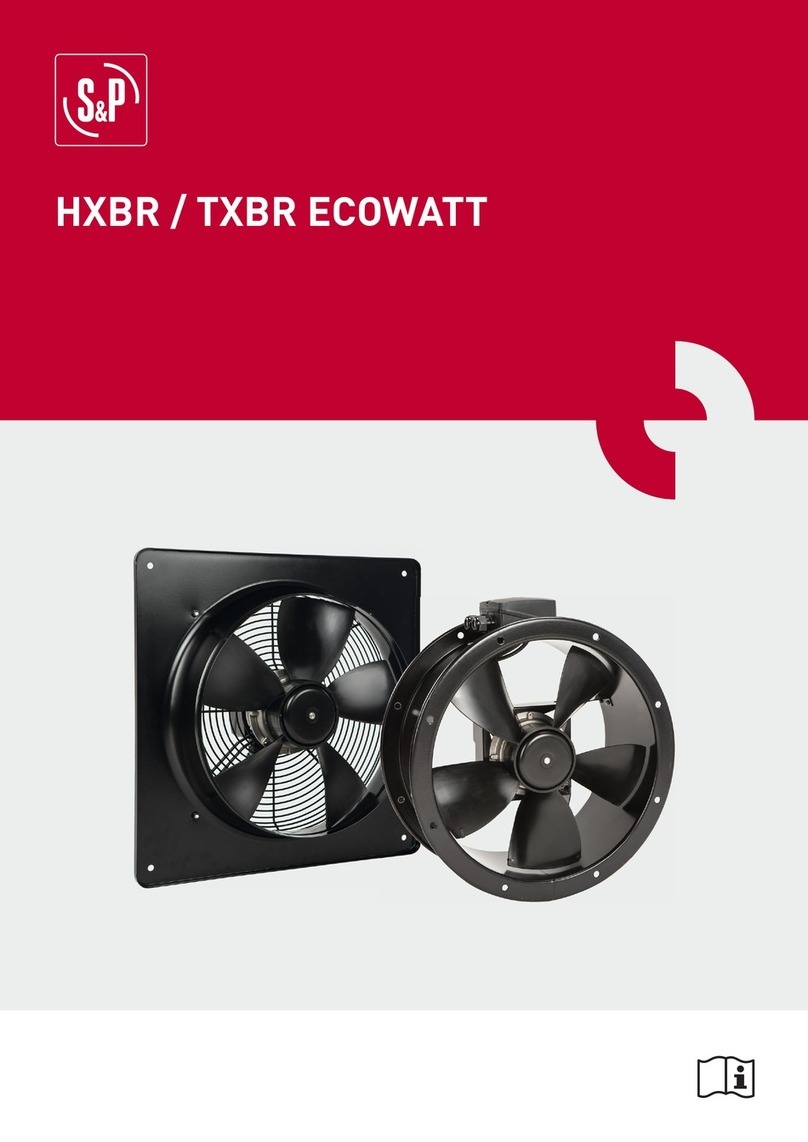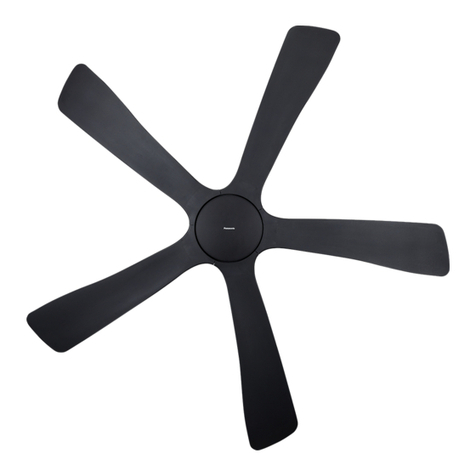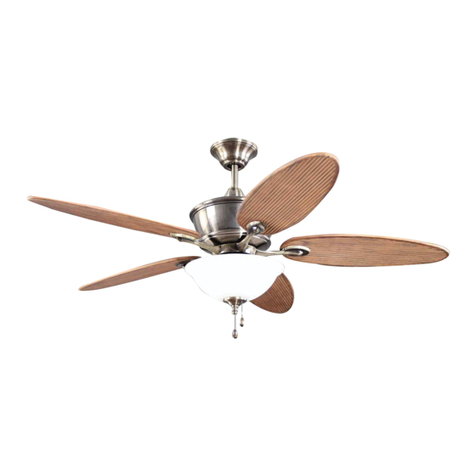
2
PELICAN Ceiling
We reserve the right to alter specifications. 20080315 www.swegon.com
Technical Description
Design
The square, perforated supply air diffuser consists of a
diffuser backing box and a diffuser face. The air diffuser's
perforated face plate is equipped with an adjustable air
flow director for simple variation of the distribution pattern.
The diffuser face is easy to install and remove. This enables
quick and uncomplicated installation, commissioning and
cleaning.
The air diffuser is also available in a low version if the
space inside the ceiling void is restricted. The air diffuser is
then supplied without sleeve coupling.
Materials and finish
The diffuser backing box and the diffuser face are made
of sheet steel. The commissioning box is made of galva-
nized sheet steel. The interior and exterior surfaces of the
air diffuser are painted in our standard white colour: RAL
9010. Air diffuser is also available painted in alternative
standard colours: dusty grey RAL 7037, white aluminium
RAL 9006, jet black RAL 9005, grey aluminium RAL 9007
and signal white RAL 9003 (NCS 0500).
Accessories:
Commissioning box:
ALS commissioning box made of galvanized sheet steel.
The commissioning box contains a removable commis-
sioning damper, fixed measurement tappings and sound
absorbing material with a reinforced surface layer.
A combination for low design is also available, if instal-
lation in an extra low ceiling void is required. The air dif-
fuser as well as the commissioning box are then supplied
without any insertion joint and branch.
The commissioning box is available with 1 or 2 changes in
dimension between the inlet and the outlet.
Frame:
SAR K, for aesthetic installation of a lowered diffuser section.
Adapter:
ADAPTER L, for matching the diffuser to suspended ceil-
ing systems.
Project Design
PELICAN Ceiling is available in two connection sizes with
square dimensions of 395 x 395 and 595 x 595 mm
respectively. This makes the air diffusers very easy to
install in suspended modular ceilings with size 600 x 600
mm insertion dimensions for modules. Position the air
diffuser on the surface of the T-bar framework and then
secure it to the duct system. PELICAN Ceiling is also
available in a low version for installation in a ceiling void
where the installation height of components must be
minimized.
The air flow director can be accessed after you remove
the air diffuser face from its spring retainers. It consists of
a number of adjustable air deflectors and by turning these
you can easily set the distribution pattern desired. See
Figures 1 and 2.
Installation
To unfasten the diffuser face, press in the spring retainers
on one side of the diffuser and let the diffuser face hang
on its safety cords. The inlet spigot of the diffuser backing
box can be secured to the connecting ducting by means
of self-tapping screws or a blind rivets. For flush-mount-
ing in fixed ceiling constructions, secure the air diffuser by
means of self-tapping sheet metal screws in the underside
of the commissioning box.
For installation in modular suspended ceilings, position
the air diffuser directly down in the T-bar framework, and
then secure it to the building structure with hangers or
mounting brackets. The distance between the commis-
sioning box and the air diffuser can be increased by as
much as 500 mm using an ordinary circular duct without
having to lengthen the measuring hoses and damper
adjustment cords. When the air diffuser is used for
exhaust air, remove the perforated plate in order to
reduce the risk of clogging. See Figures 1 and 2.
Commissioning
Commissioning for supply air must be carried out with
both the diffuser section and the perforated diffuser face
mounted. Pull out the white and red (or blue for a two-
step box) measuring hoses and the damper adjustment
cords through the diffuser face perforations and connect
the measuring hoses to a manometer. The required com-
missioning pressure can be calculated using the K-factor
of the air diffuser. When you have set the damper blade
to the correct position, tie a commissioning knot in the
damper cords to indicate the damper position. To com-
mission for extract air, move the commissioning box’s
measuring hose to the measuring nipple on the damper
handle. See Figure 4.
The K-factor is specified on the identification label of the
product and in the relevant commissioning instructions at
www.swegon.com.
Maintenance
The air diffuser can be cleaned, if necessary, using luke-
warm water with dishwashing detergent added. The duct
system can be accessed after you have opened the air
diffuser face and removed the perforated plate. If an ALS
commissioning box is used, pull the distributor plate aside
to enable you to grip and twist the damper unit from of
its mounting.
Environment
The Declaration of construction materials is available from
at www.swegon.com.
